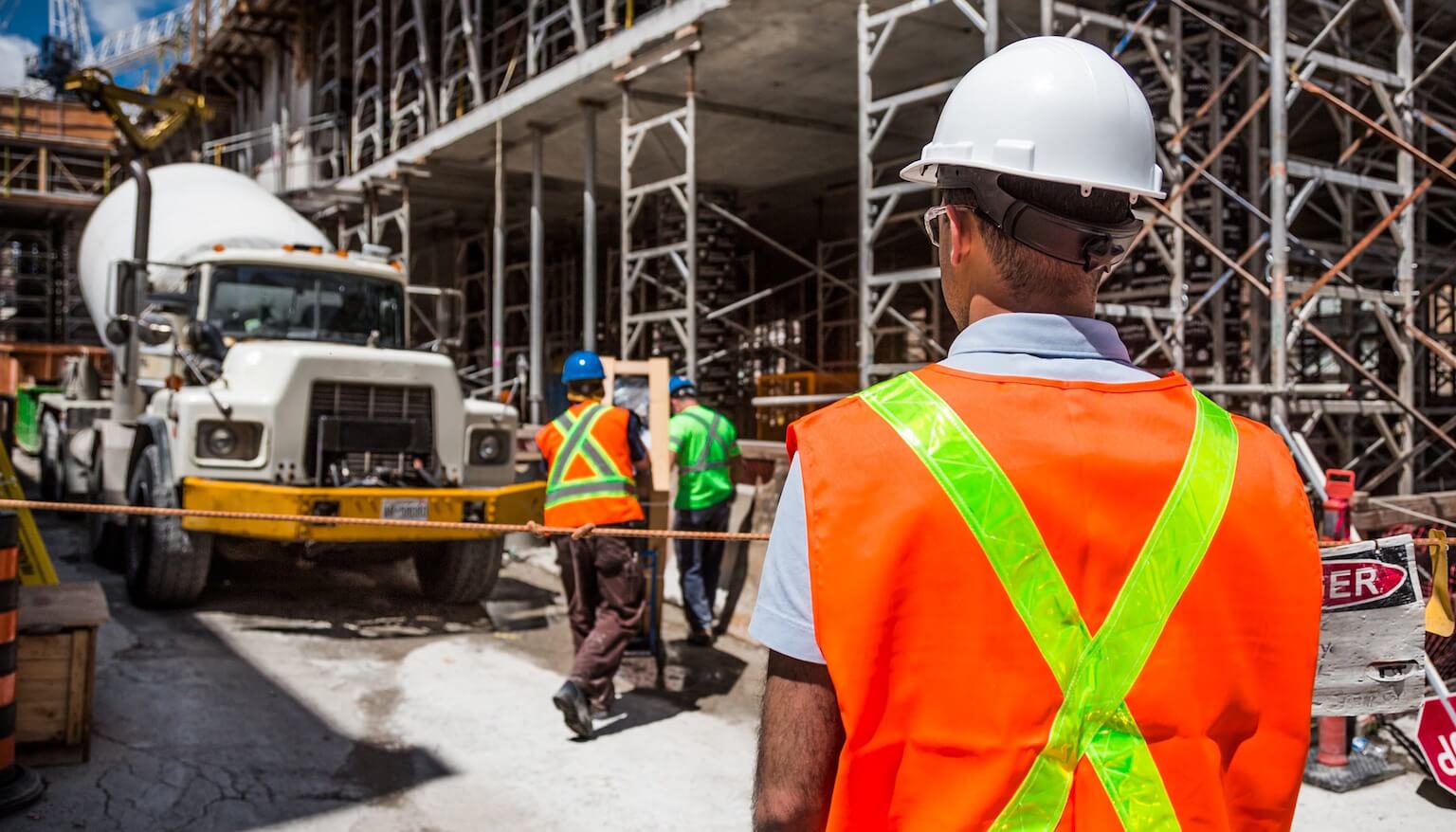
Critical infrastructure projects, manufacturing and public safety are among the sectors of everyday life in Iowa that largely have stayed on track despite the spread of COVID-19. But disruptions due to the infectious disease are starting to be felt.
Ryan Drew, business representative for the International Union of Operating Engineers Local 150, said one of his major projects shut down this week because a crew member working to build a new bridge on Interstate 74 in Illinois tested positive for COVID-19.
“People in the construction industry tend to think, well, you know, I work outside all year — you got that persona that somehow it’s not going to affect me, I’m working outside,” Drew said. “Well, you can pick it up from anywhere and it can affect you.”
Though construction is considered an essential function under Illinois’ stay-at-home order, the project’s Wisconsin-based contractor opted to temporarily shut down the work site for a week and then “re-evaluate,” according to the Quad-City Times.
“I’ve heard other areas where jobs have shut down because they didn’t want to risk the exposure, but in my area, Eastern Iowa, from Keokuk to the Quad Cities, we haven’t seen a whole lot of those jobs shutting down,” Drew, of Burlington, said. “That bridge job is the first and obviously the biggest.”
Three of Iowa’s neighboring states have instituted shelter-in-place or stay-at-home orders to close non-essential businesses and keep residents at home unless they must commute to work, buy groceries or medicine.
Gov. Kim Reynolds has reiterated her decision not to issue a stay-at-home order, saying her guidance to Iowans about limiting their time in public is the “equivalent” of mandates issued in other states.
Reynolds recommended March 15 schools close for four weeks and on March 17 ordered restaurants and bars to close their businesses to dine-in customers. On Sunday she ordered salons, barber shops, medical spas, massage therapists, tattoo shops and swimming pools to close. This afternoon, that directive extended to most retail shops.
“In hindsight, if Iowa doesn’t see the spread like other states, then you can sit back and say, well yeah, it’s a good thing we kept as many things going as possible,” Drew said. “But if we just delay it … the worst thing that can happen was we return to normal circumstances and then we have to go through this twice and shut down the economy twice, and nobody would like to see that. I understand that’s a difficult decision. That’s why I say I fear that it’s putting individuals more in that position than the state does when they don’t make that decision.”
[inline-ad id=”1″]
At a White House press conference Wednesday, members of the coronavirus task force warned this new strain of coronavirus could become cyclical and seasonal. Experts have warned against reopening society too soon, out of fear COVID-19 will continue to spread if social distancing isn’t strictly enforced now.
In Cedar Rapids, Collins Aerospace on Sunday instructed employees at a specific production building to work from home, except those performing “business critical” work, after learning an employee tested positive for COVID-19, according to The Gazette. Other Iowa manufacturers, like Winnebago Industries, Polaris Inc., Flexsteel Industries and Bridgestone Americas Inc., have temporarily suspended production in an effort to keep the coronavirus out of their facilities. Spokespeople for Deere & Co., Pella Corp., General Mills and Tyson Foods told the Des Moines Register they intend to stay open.
“It is absolutely ridiculous that we have major employers in this state that are waiting to have a positive case of COVID-19 in their workplace to then shut everything down,” said Charlie Wishman, secretary and treasurer at the Iowa Federation of Labor. “By that time it’s too late.”
In an effort to reach Iowans, the state chapter of AFL-CIO compiled a short survey “to give us accurate information to identify the real needs of working families.”
The Iowa Federation of Labor’s survey can be accessed here.
On Wednesday, Julianne Frosolone, state political director, said about 500 people responded to the survey in one day.
“That’s one thing that we’re doing is trying to actually get a sense from workers and hear their stories and understand what the problems out there are, because this an unprecedented situation right now and it’s one that none of these workers have ever been through and none of their employers have ever been through,” Wishman said. “So we need to figure out what the problems are so we know what to fix when the Legislature comes backs on April 15.”
[inline-ad id=”0″]
On March 16, the Iowa Legislature suspended session for at least 30 days, meaning the earliest lawmakers will return to the Capitol is still three weeks away.
As Drew hears from workers struggling to find childcare and debating whether to take time off to care for their kids while they’re out of school, he worries there has been insufficient communication from the government explaining how Iowans can access new benefits set up by state and federal agencies.
“We always say this in the construction world: the lack of communication creates chaos on the job,” Drew said. “It’s no different in life. When there’s no clear communication that people can plan around, then it leads to a little more of the chaos side of the scale.”
Iowa Workforce Development set up an FAQ landing page for workers impacted by the coronavirus, and the Department of Human Services created a statewide map of childcare providers for “essential” workers to utilize.
Today, the U.S. Department of Labor said 41,890 people filed for unemployment last week in Iowa (including 938 people who live out-of-state but work in Iowa), up from 2,489 people the week of March 9. Nationwide, almost 3.3 million Americans filed for unemployment between March 15-21.
Danny Homan, president of AFSCME Council 61, like thousands of other Iowans, is now conducting his business over the phone.
“I’ve never spent so much time on a goddamn conference call than I have right now,” Homan grumbled.
Much of his work has centered on the Department of Corrections and communication with other state agencies as they grapple with how to protect public employees from contracting and spreading COVID-19.
“My members are concerned. They are worried, especially those that are still being required to deal with the public,” Homan said. “Let’s pull our head out of the sand. Let’s look at this for what it is. In my opinion, and I think the majority of my membership’s opinion, would say let’s shut down the non-essential businesses.”
[inline-ad id=”2″]
Some state workers conducting “temperature scans” of employees don’t have proper protective equipment, Homan said, and he heard of institutions not sanitizing thermometers in-between swipes across individuals’ forehead. Dozens of employees still are gathering together before dispersing to conduct their duties at prisons and Mental Health Institutes, he said.
“DOC is working with me to stop all that,” Homan said. “They’re getting it. I don’t know if other agencies are doing that.
“I keep telling them, I’m not here to bust your chops … I just want to make sure you’re going to have the employees that are able to come to work and who can provide the essential functions that we have to provide,” he continued. “Because if we get an outbreak in an MHI, we get an outbreak in a prison, how the hell are we going to staff that if half the correctional officers end up in a hospital with COVID-19?”
By Elizabeth Meyer
Posted 3/26/20
Politics

6 terrifying things that could happen if the Comstock Act is used to target abortion
Does 1873 sound like a really, really long time ago? Well, that’s because it is—but if Republicans and far-right anti-abortion activists have their...

Iowa parents explain how ‘fetal personhood’ would harm IVF
Lyndi Buckingham-Schutt and her husband Andy Schutt, both Des Moines residents, always knew they wanted to have children. When Lyndi was 30, they...
Local News

No more Kum & Go? New owner Maverik of Utah retiring famous brand
Will Kum & Go have come and gone by next year? One new report claims that's the plan by the store's new owners. The Iowa-based convenience store...

Here’s a recap of the biggest headlines Iowa celebs made In 2023
For these famous Iowans, 2023 was a year of controversy, career highlights, and full-circle moments. Here’s how 2023 went for the following Iowans:...




